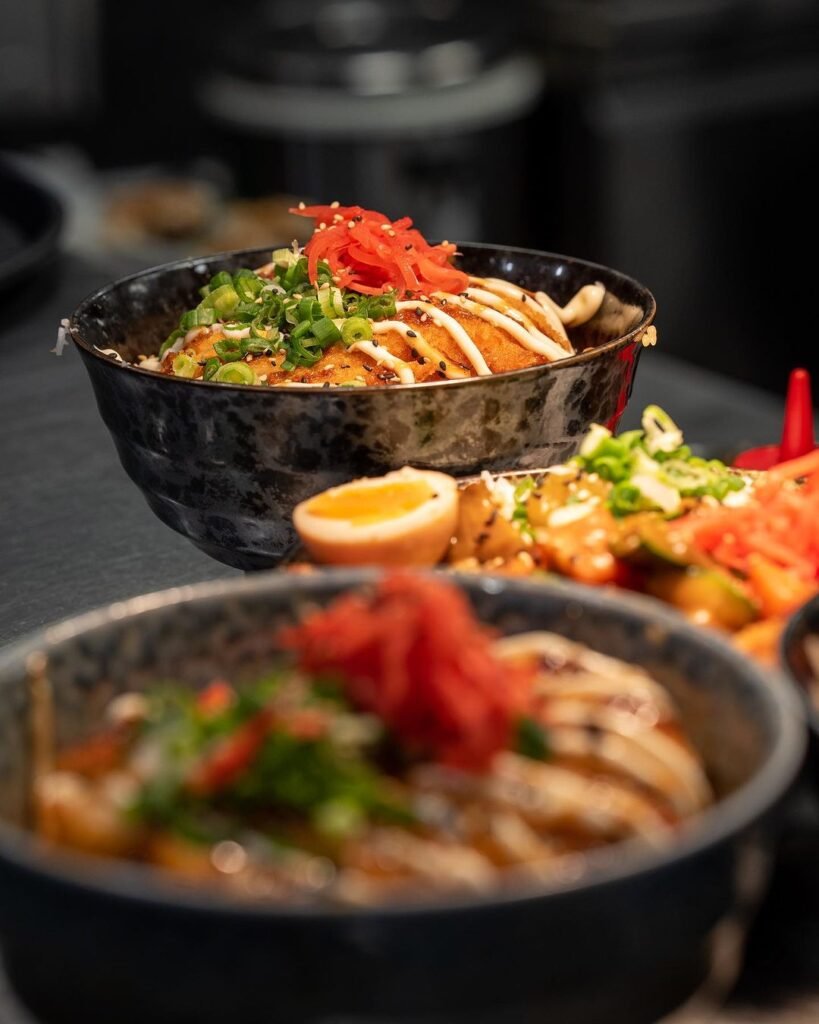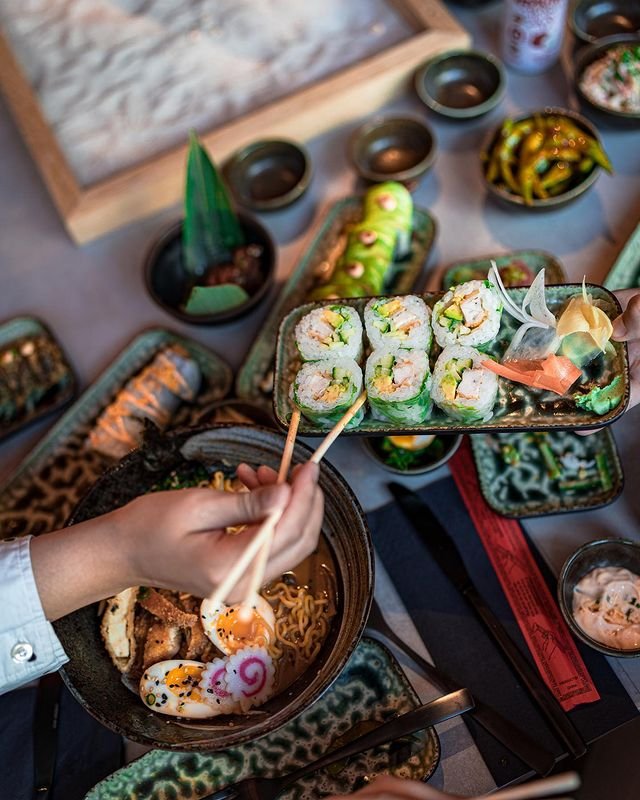Japanese Voluntary Halal: A Growing Trend In Cultural Harmony
Japanese Voluntary Halal is becoming a significant movement that bridges cultures and creates harmony between Muslim travelers and local communities in Japan. It’s more than just food; it’s about acceptance, understanding, and mutual respect. This trend has been gaining traction over the past few years, and it’s here to stay. Whether you're planning a trip to Japan or simply curious about this cultural phenomenon, this article dives deep into everything you need to know.
Have you ever wondered how a country with deeply rooted traditions like Japan can adapt to the needs of international visitors? Well, Japanese Voluntary Halal is one of the answers. It’s a movement where businesses, restaurants, and even individuals voluntarily comply with halal guidelines to accommodate Muslim tourists. This initiative not only enhances tourism but also fosters cultural exchange and understanding.
As the world becomes more interconnected, the demand for halal-certified products and services continues to rise. Japan, known for its meticulous attention to detail, has embraced this trend with open arms. The Japanese Voluntary Halal movement is a testament to their commitment to inclusivity and diversity. So, let’s explore how this trend is shaping the future of travel and cultural interaction.
Before we dive deeper, here’s a quick overview of what you’ll find in this article:
- What is Japanese Voluntary Halal?
- The Impact on Tourism
- Halal Certification Process
- Challenges and Opportunities
- Restaurants Going Halal
- Travel Tips for Muslims
- Cultural Significance
- Economic Benefits
- Future Predictions
- Conclusion
What is Japanese Voluntary Halal?
Japanese Voluntary Halal refers to the conscious effort by Japanese businesses to adopt halal practices without being mandated by law. This movement is driven by the increasing number of Muslim tourists visiting Japan. Businesses, from small local eateries to large chain restaurants, are going above and beyond to ensure their offerings meet halal standards. It’s not just about food; it’s about creating an inclusive environment for everyone.
Why is it Important?
This initiative is crucial because it addresses the needs of a growing demographic. Muslim travelers often face challenges when it comes to finding halal food options. By embracing Japanese Voluntary Halal, businesses are not only attracting more tourists but also showing respect for their beliefs and practices. It’s a win-win situation for both parties involved.
Moreover, this movement reflects Japan’s willingness to adapt and evolve in a globalized world. It’s not just about economic benefits; it’s about building lasting relationships with people from different cultures.
The Impact on Tourism
Tourism in Japan has seen a significant boost thanks to the Japanese Voluntary Halal movement. Muslim travelers, who previously hesitated to visit due to limited halal options, are now flocking to the country. This trend has opened up new opportunities for businesses and has contributed to the overall growth of the tourism industry.
Statistics to Consider
According to a recent report by the Japan National Tourism Organization (JNTO), the number of Muslim tourists visiting Japan has increased by 20% in the past year alone. This growth is largely attributed to the efforts of businesses adopting halal practices. Additionally, surveys indicate that 70% of Muslim travelers consider halal certification a key factor when choosing a destination.
- 20% increase in Muslim tourists
- 70% of travelers prioritize halal certification
- Businesses report a 15% rise in revenue
Halal Certification Process
For businesses looking to join the Japanese Voluntary Halal movement, understanding the certification process is essential. While there’s no legal requirement, obtaining halal certification from recognized organizations can significantly enhance credibility and trust. The process involves several steps, including:
- Applying to a certified halal organization
- Undergoing inspections and audits
- Implementing halal-friendly practices
- Receiving certification and ongoing compliance checks
Challenges in Certification
One of the main challenges businesses face is the cost and time associated with obtaining certification. However, many organizations offer support and resources to make the process smoother. Additionally, the long-term benefits often outweigh the initial investment, making it a worthwhile endeavor.
Challenges and Opportunities
Like any new initiative, the Japanese Voluntary Halal movement comes with its own set of challenges and opportunities. On one hand, businesses may struggle with adapting to new practices and meeting certification requirements. On the other hand, the opportunities for growth and expansion are immense.
Potential Growth Areas
As more businesses join the movement, there’s a growing demand for halal-friendly products and services. This presents an opportunity for innovation and diversification. From halal cosmetics to halal-friendly accommodations, the market is ripe for expansion. Businesses that embrace this trend early on are likely to reap the rewards in the long run.
Restaurants Going Halal
Restaurants play a crucial role in the Japanese Voluntary Halal movement. Many establishments are now offering halal-certified menus, ensuring that Muslim travelers can enjoy authentic Japanese cuisine without compromising their dietary restrictions. This shift not only attracts more customers but also enhances the dining experience for everyone.
Examples of Halal-Friendly Restaurants
- Sushi restaurants offering halal fish options
- Ramen shops with halal broth
- Teppanyaki restaurants providing halal meat
These restaurants are setting a new standard for inclusivity and are paving the way for others to follow suit.
Travel Tips for Muslims
If you’re a Muslim traveler planning a trip to Japan, here are some tips to help you navigate the halal scene:
- Research halal-certified restaurants and accommodations beforehand
- Download apps that provide halal restaurant listings
- Carry your own halal snacks for emergencies
- Engage with local communities to learn more about halal practices
By being prepared and informed, you can ensure a smooth and enjoyable trip.
Cultural Significance
The Japanese Voluntary Halal movement goes beyond just food and business. It’s a cultural bridge that connects people from different backgrounds. By embracing halal practices, Japan is showing the world that diversity and inclusivity can coexist harmoniously. This movement fosters mutual respect and understanding, paving the way for a more connected global community.
Building Bridges
Through initiatives like Japanese Voluntary Halal, Japan is breaking down cultural barriers and building bridges between communities. It’s a powerful reminder that when we embrace each other’s differences, we create a world that’s richer and more vibrant.
Economic Benefits
From an economic standpoint, the Japanese Voluntary Halal movement is a game-changer. By catering to a growing demographic, businesses are tapping into a lucrative market. The increase in Muslim tourists has led to a rise in revenue for various sectors, including hospitality, retail, and food services.
Long-Term Gains
The economic benefits of this movement extend beyond immediate gains. Businesses that embrace halal practices are likely to see sustained growth and increased brand loyalty. As more travelers seek out halal-friendly destinations, Japan is positioning itself as a leader in this space.
Future Predictions
Looking ahead, the Japanese Voluntary Halal movement is poised to continue its upward trajectory. With more businesses adopting halal practices and increasing awareness among consumers, the future looks bright. Experts predict that the halal market in Japan will grow exponentially in the coming years, driven by both domestic and international demand.
What’s Next?
As technology advances, we can expect to see innovations in halal certification and tracking. Mobile apps and digital platforms will make it easier for travelers to find halal-friendly options. Additionally, collaborations between businesses and halal organizations will likely increase, leading to more standardized practices across the industry.
Conclusion
In conclusion, the Japanese Voluntary Halal movement is a remarkable example of cultural adaptation and economic foresight. It’s not just about food; it’s about creating a world where everyone feels welcome and respected. By embracing halal practices, Japan is setting a new standard for global tourism.
We encourage you to share your thoughts and experiences in the comments below. Whether you’re a business owner considering going halal or a traveler looking for halal-friendly destinations, this movement has something for everyone. Don’t forget to explore our other articles for more insights into global trends and cultural phenomena.

Redirecting

Restaurant japonais halal Hanami

Restaurant japonais halal Si Unique , Si Savoureux Hanami